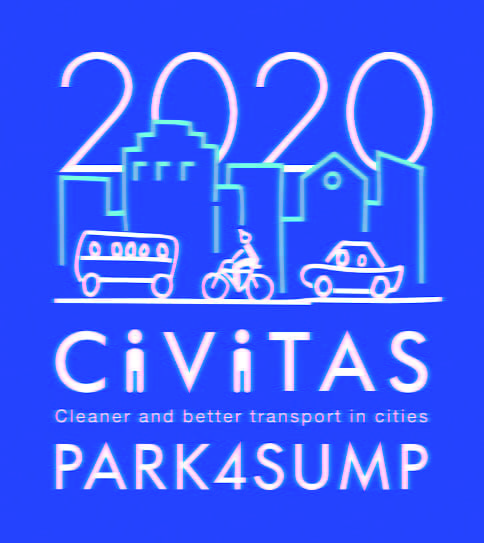High level meeting: Setting a new parking standards & preparing buildings and cities for zero-emission mobility
Cities can fundamentally change mobility behaviour by addressing the availability of parking spaces for bicycles and cars. POLIS, HANDSHAKE and ECF join for a high level parking meeting to discuss the solutions available.
Time & Date: 18 May, 15:00 - 17:00
Location: Online
This event, organised by POLIS (on behalf of Park4SUMP), ECF and HANDSHAKE, who will:
- build a case for ‘maximum’ requirements: Most countries have so-called “minimum requirements”. That implies building developers can build more if they want. Fixed maximum car parking allowances limit how much parking is provided in new buildings in order to reduce costs and deal with all other named problems.
- showcase innovative ways to address parking and mobility norms, through neighbourhood parking and mixed-use parking.
- build a case for bicycle parking to be an essential part of parking norms, as formulated in the EPBD.
This event is specifically targeting EU and national decision makers, who currently discussing national approaches as well as the EPBD. The event will provide basic information about current EU legislation and its impact on the local level, and will provide the opportunities to discuss challenges ahead, and potential solution pathways.
The issue
Approximately 80% of all journeys begin and end at the home, so that the availability of parking facilities at the home is of particular relevance for the choice of mode of transport. If your own car is the closest means of transport to your home, it is often the first choice. If your bicycle is the closest to your home, you will cycle more.
Parking standards regulate how much bicycle and parking space is built. Parking standards were designed to instruct developers to build parking lots in relation to the number and scale of activities in the buildings in question. High requirements to build the fixed standards affect construction and maintenance costs of (new) buildings, create land use conflicts and severe environmental problems.
In addition, parking is a cost factor in housing construction and parking requires space, which not only reduces the area that can be built on, but also takes up space for stay and play.
The topic is especially relevant with ongoing decisive discussions about the EU Energy Performance of Buildings Directive, laying down the framework for building requirements – including potential obligations for bicycle parking in buildings.
About Park4SUMP
The Horizon 2020 project Park4SUMP aims to reverse this status by considering parking management as part of a wider strategy that can benefit urban mobility but also the overall quality of life of our cities. In fact, good parking management can help freeing up public space, supporting local businesses, reducing search travel, generating revenues, and making our cities more attractive. Sixteen cities have teamed up in the project to demonstrate and transfer benefits of strategically and smartly managed parking.
Meeting outcomes
A concise meeting report, as well as the best practices mentioned and presented in the break-out sessions will be dispatched to EU and national level decision makers in the fields of mobility, urban planning and energy.

